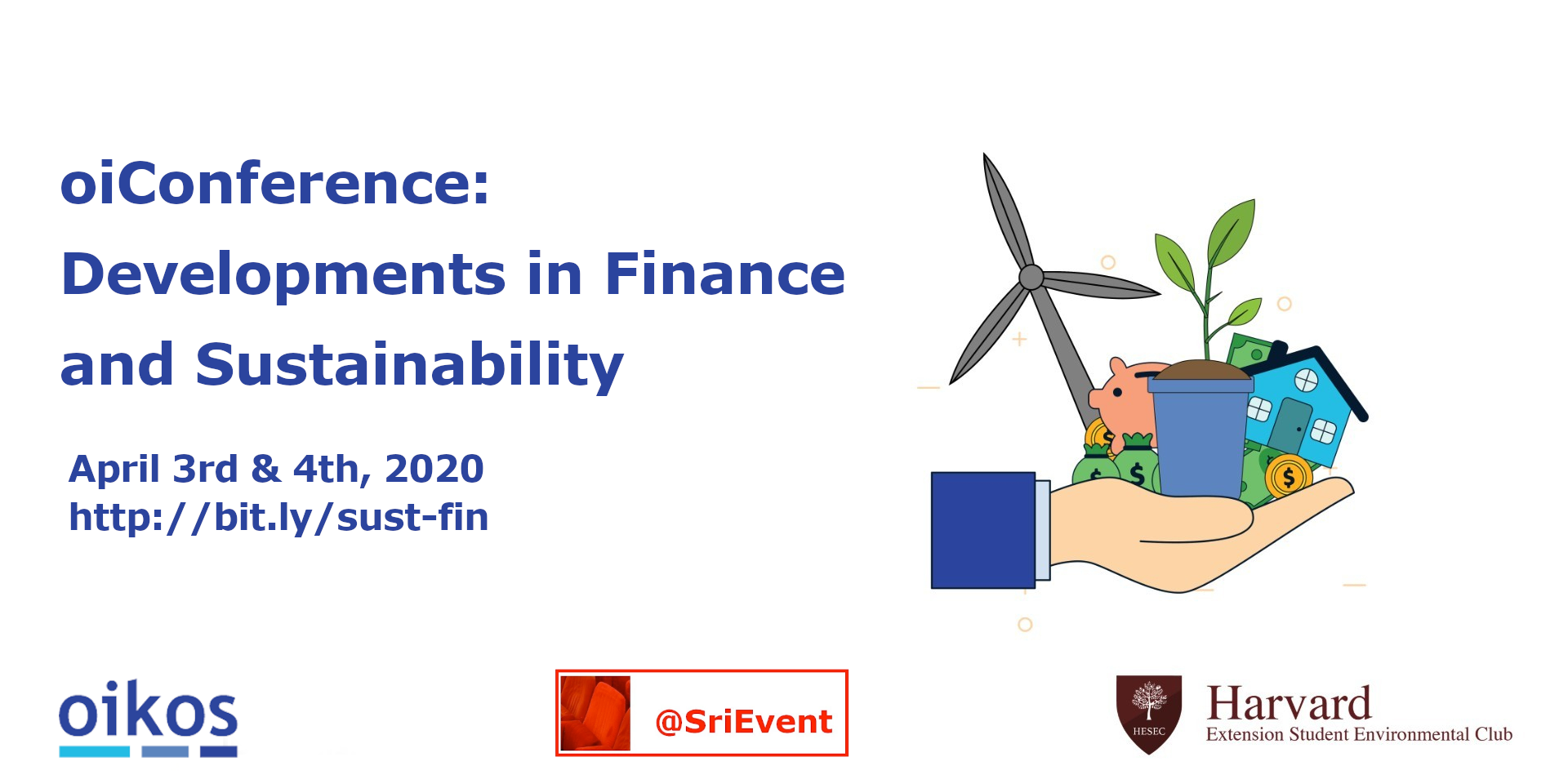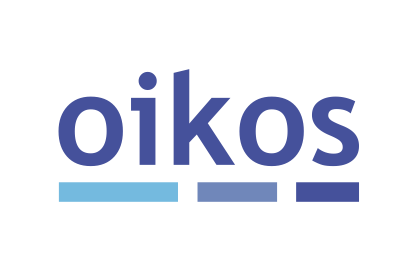oiConference: Developments in Finance and Sustainability
Over the past few years, the issue of climate change has increasingly turned up at the forefront of the news—and the urgency to put long-term solutions in place is palpable, be it in discussions over the destruction in the Amazon, the fires in Australia, or in response to student protests worldwide. To be sure, the modern economic model has created historically unknown material richness for humans, a massive increase in the human population worldwide, and a higher life expectancy for millions. But it has also created extreme inequality—unfathomable richness for few, abject poverty for many—and it has also led to massive destruction in the natural environment, as humanity is using more and more resources for itself and putting the (toxic) waste from our production in land, water, and sky. The symbols of unimaginable abundance—clean water and air, and even sand—are all becoming scarce. The results can be summed up in two concepts: the climate crisis and the world’s 6th mass extinction. Both are highly threatening to political, social, and economic longevity.
But discussions over the need for change have (luckily) been getting stronger: As a case in point, the fossil fuel divestment movement has achieved some noteworthy results, increasing pressure on the financial industry to adapt and for investors to change their portfolio. An increasing number of universities in the US have pledged to divest their own funds from fossil fuels, the world’s largest asset manager, BlackRock, has decided to divest from fossil fuels, and central banks have started to take more seriously the systemic risks for the financial system stemming from climate change and debates over how to evaluate not only stocks and bonds but also how to conceive of central banking given the exposure to climate risks.
This is the backdrop against which this online workshop—taking place on April 3rd and 4th—has been organized. The goal is to take stock of recent developments in the field of finance and sustainability and to critically discuss them. We are going to have conversations with members from banks and NGOs building indices and taxonomies for more sustainable investing, we will discuss fossil fuel divestment and environmental justice with proponents, some of which are taking the activist route, others are taking an entrepreneurial approach. Since increasing issues of solastalgia (eco-anxiety) are being discussed as inhibiting change, we will also take some time to also think through what this means, be it as activists or citizens, and be it for potential customers or investors.
The conference’s target group consists of both professionals and academics alike. Participation at our last webinar indeed was about 50/50 of each. As last time, this conference is free for everyone. We hope that you will join us for any or all of the 9 planned sessions (see below, with individual sign-up links), start times or the sessions are Eastern (GMT-4).
Day 1 一 Friday, April 3rd 2020
10am 1.1) Climate Grief and Personal Change
11am 1.2) Sustainable Finance 101: What does it all really mean?
1pm 1.3) Planning for a Sustainable Life
2pm 1.4) World Cafe and Breakouts: Reflection and Networking
Day 2 一 Saturday, April 4th 2020
10am 2.1) Sustainability Perspectives from Asia
11am 2.2) Society, Race, and the Environment
12pm 2.3) The Language of Sustainability
2pm 2.4) The Fossil Fuel Divestment Movement
3pm 2.5) World Cafe and Breakouts: Reflection and Networking
If you want to participate at several or all of the sessions, you can sign up here.
This webinar is the second online conference on Sustainability and Finance organized and supported by oikos International and the Harvard Extension School's Student Environmental Club.


